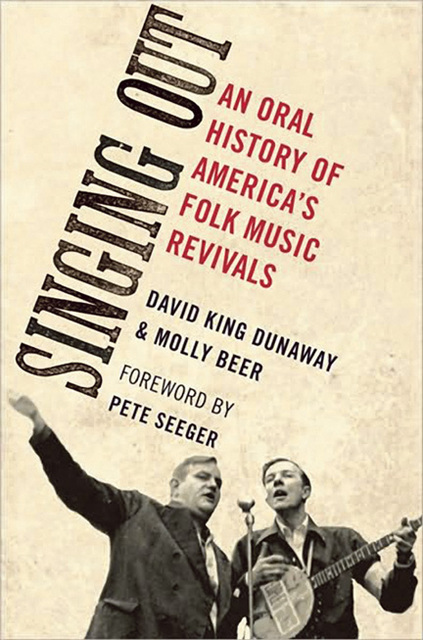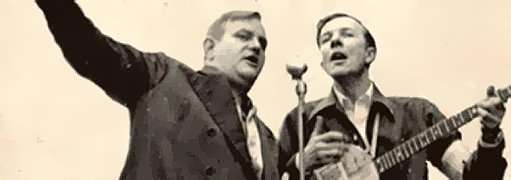Imagine you found yourself transcribing thousands of pages of interviews with some of the key figures of an important American movement. Would you just ship them off to the Library of Congress to be archived and maybe, someday, found by someone else? Or, would you compile and edit them into an easy-to-read compendium of voices that shaped an era? If you were David King Dunaway and Molly Beer, you’d do the latter. Their book Singing Out: An Oral History of America’s Folk Music Revivals tells the story of American protest music from the early 20 th century to the present. Though bands such as Public Enemy and Nirvana don’t exactly sound like Pete Seeger and the original crew of folkies, they share a similar aesthetic. “Rap music started to be urban political folk music before it became a parody of itself,” says singer-songwriter John McCutcheon in Singing Out . Beer says it was important to her to include the newer artists in the book because she wanted to show the older generations that musicians are still political. “We get into how people now are integrating folk music,” she tells the Alibi . The bulk of Singing Out , however, stems from Dunaway’s years of research on Pete Seeger and folk music of the past. Because the book is primarily made up of interview snippets, the stories told, though often repeated in popular culture, are fresh. For example, when discussing “We Shall Overcome,” a song associated with the Civil Rights Movement, singer Guy Carawan says he, Frank Hamilton and Pete Seeger’s “names were on the copyright … so we took the money and put it in a fund.” He says the song originally had the lyrics “I shall overcome” but “it got switched around to ‘We’ll’ in 1945 for the Food and Tobacco Workers strike.” Beer also says she found unexpected kinships with a few of the interviewees. “Bess Lomax Hawes I just love,” she says. “Her rendition of everything, because you get so much from men or from women who would dodge questions, is just really honest.” Hawes describes Woody Guthrie’s later career as impossible without the experience he had with the group The Almanac Singers. Without living and working with a group, she says, “he would have been too damned individualistic and too ornery and too horrible!” Because the stories told in Singing Out are so strong and lively, Beer says she and Dunaway wanted to let the storytellers speak for themselves. At their upcoming Bookworks reading, they’ll take that a step further, playing some of the recordings, which were gathered by Dunaway over the course of many years as he worked on several books about Pete Seeger. The quality of the recordings vary, according to Beers, but the audio gives readers of the book a sense of what the speakers sound like. “One of the sad things about this book is that it’s on the page and you don’t have the voices,” she says. Those personalities do come through, though, and Singing Out paints a colorful picture of an era of music long known to outsiders through the perspective of those who lived it.
David King Dunaway and Molly BeerBooksigning and Talk Saturday, July 24, 3 p.m. Bookworks4022 Rio Grande NWbkwrks.com/event/dunaway











